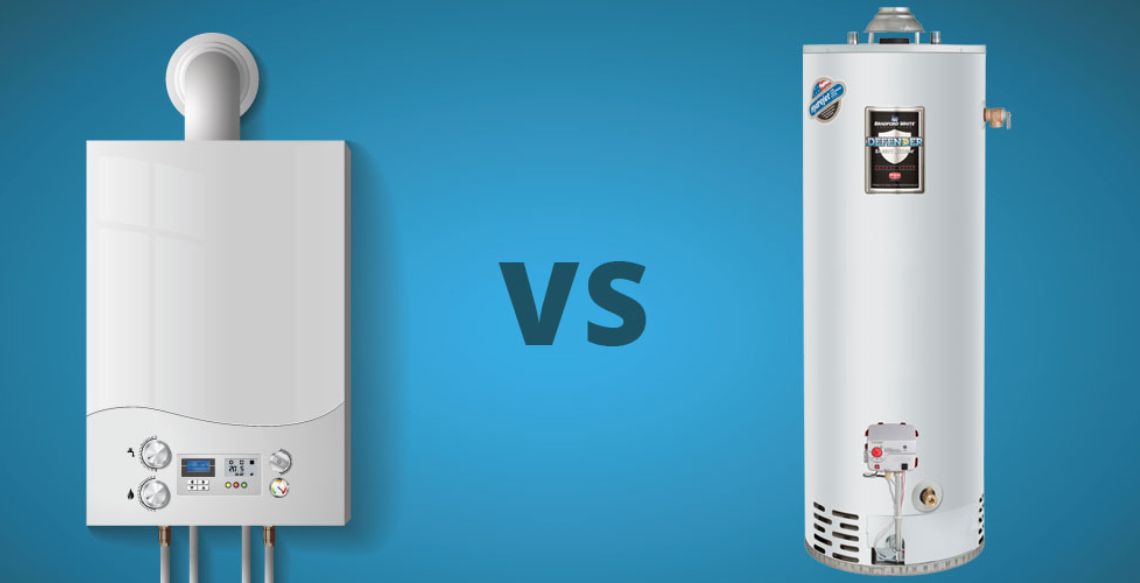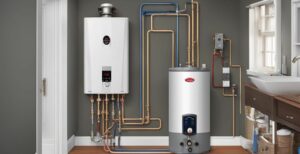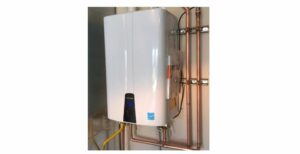Introduction:
The choice between tank and tankless water heaters is one that homeowners grapple with when it’s time for a replacement or during the initial installation in a new home.
Both options have their merits and drawbacks, influenced by factors such as energy efficiency, cost, and long-term benefits.
In this comprehensive guide, we’ll explore the intricacies of tankless water heaters, compare them with traditional tank models, and delve into the pros and cons of each.
We aim to provide you with all the information you need to decide which water heating solution is best for your home, with insights from industry experts like Life Mechanical in Victoria, BC.
What Is a Tankless Water Heater?
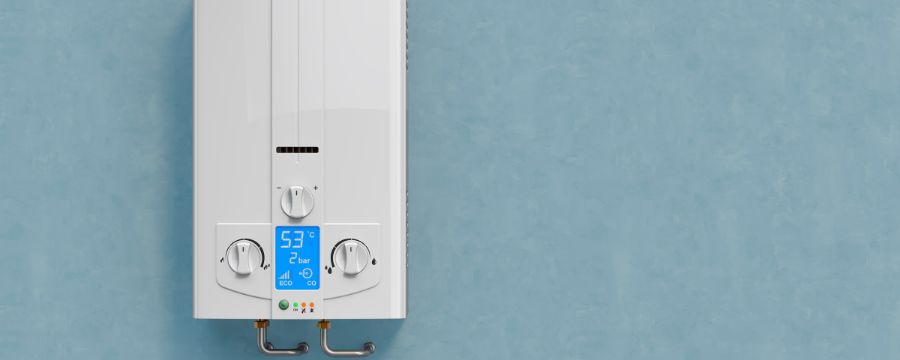
A tankless water heater, often called an on-demand water heater, heats water directly without using a storage tank.
When a hot water tap is turned on, cold water travels through a pipe into the unit, and either a Gas Burner or an electric element heats the water.
This means tankless water heaters deliver a constant hot water supply, eliminating the wait time for a storage tank to fill up with enough hot water.
Tank vs Tankless Water Heater: Which One Is the Best?
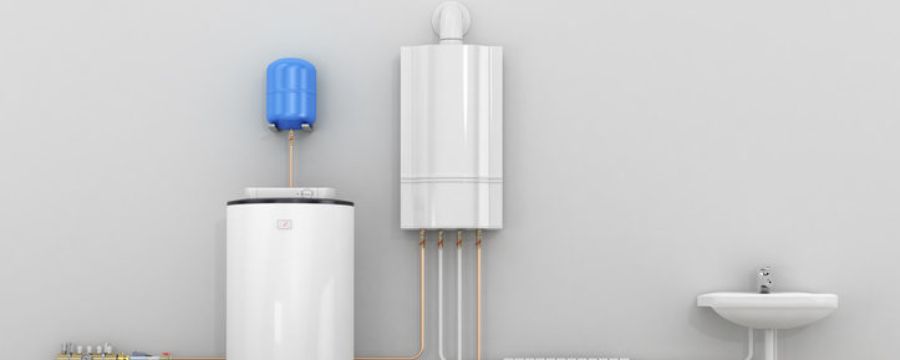
Choosing between a tank and a tankless water heater depends on various factors, including your household’s water usage, energy efficiency preferences, initial investment, and space considerations.
Here, we compare the two based on these criteria to help you determine which might be the best fit for your needs.
Comparing Tank vs. Tankless Water Heaters
Storage Tank Water Heater
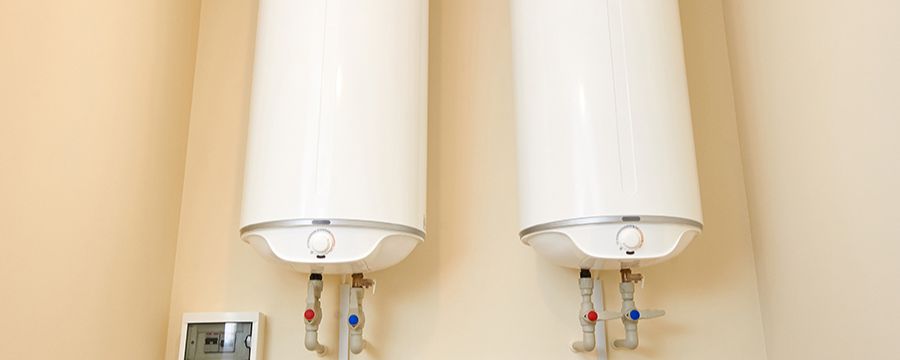
Pros:
Lower Initial Cost: Traditional tank water heaters generally cost less to purchase and install than tankless options.
Simplicity: Their operation is straightforward, which can mean fewer maintenance issues over time.
Reliability: Provides a steady hot water supply, with capacity depending on the tank size.
Cons:
Higher Energy Costs: Tank models continuously heat and reheat water to maintain the temperature in the tank, leading to higher energy usage.
Bulky Size: The tank’s physical size may require significant space, which can be a disadvantage in smaller homes or apartments.
Limited Hot Water Supply: The capacity can be depleted during heavy usage, leading to wait times for hot water replenishment.
Tankless Water Heaters
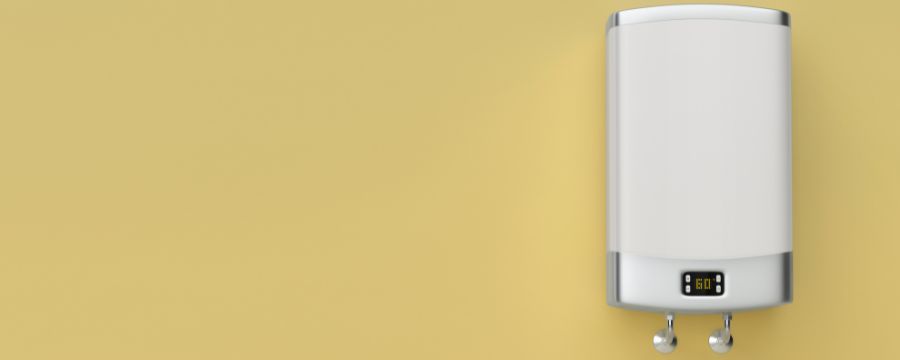
Pros:
Energy Efficiency: Only heating water on demand can lead to significant energy savings over time.
Continuous Hot Water: Provides an endless supply of hot water, ideal for families or high-demand usage.
Space-Saving: Compact size allows for installation in smaller or more confined spaces.
Cons:
Higher Initial Investment: The upfront cost of purchasing and installing a tankless water heater can be significantly higher than that of a tank model.
Retrofitting Challenges: Installing a tankless system in a space designed for a tank can require extensive plumbing or electrical changes.
Limited Output: Simultaneously, multiple uses of hot water can exceed the heater’s capacity, affecting performance.
Gas-Powered Tankless Water Heaters
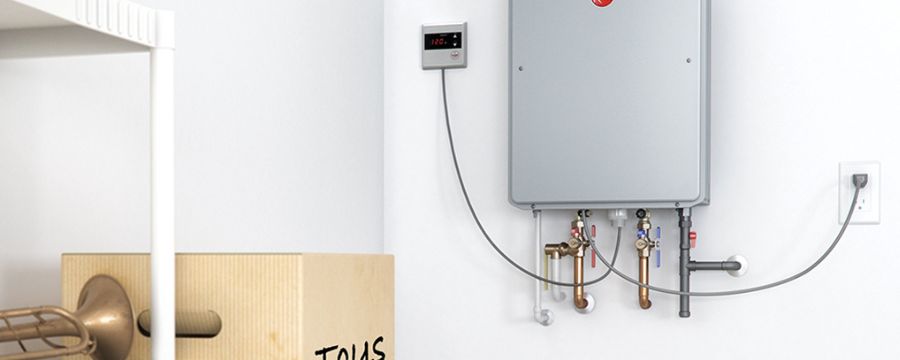
Gas-powered tankless water heaters are known for their high output and efficiency. They are an excellent option for larger households with higher hot water demands.
However, they require venting and may have higher operational costs compared to electric models due to the cost of natural gas.
Electric-Powered Tankless Water Heaters

Electric tankless water heaters are suited for smaller households and applications where less hot water is used.
They are easier to install, require no venting, and have lower initial costs. However, their output is generally lower than gas models, which can be a limitation in high-demand situations.
Making the Choice: Tank vs Tankless
The decision between a tank and tankless Water Heater Maintenance involves weighing the pros and cons in the context of your household’s specific needs.
Consider initial budget, space availability, hot water demand, and long-term energy savings. Consulting with a professional plumbing service like Life Mechanical in Victoria, BC, can
provide valuable insights tailored to your situation, ensuring you make the most informed decision possible.
Considerations for Choosing a Water Heater
Initial Investment vs. Long-Term Savings: While tankless water heaters have a higher upfront cost, they can offer significant energy savings over time, potentially offsetting the initial investment.
Household Size and Water Demand: Larger families or homes with high hot water demand may benefit more from the continuous supply offered by tankless models.
Space Constraints: In homes where space is at a premium, the compact design of tankless water heaters can be a significant advantage.
Energy Source: The choice between gas and electric models will depend on the availability and cost of these energy sources in your area, as well as the existing infrastructure of your home.
Sustainability Goals: For those looking to reduce their environmental impact, the energy efficiency of Tankless Water Heaters can contribute to more sustainable home energy use.
Advantages and Disadvantages of Natural Gas
Natural gas is a common energy source for tank and tankless water heaters. It’s typically less expensive than electricity and can heat water more quickly. However, it requires proper venting for safety, and the fluctuating cost of gas can affect long-term savings.
Expert Installation and Maintenance
Regardless of the type of water heater, professional installation and regular maintenance are key to ensuring efficient and reliable operation.
Life Mechanical, serving the Victoria, BC area, offers expert installation, maintenance, and repair services for both tank and tankless water heaters.
Their experienced team can help you navigate the decision-making process, ensuring your new water heater meets your needs and preferences.
Conclusion
When considering a water heater for your home, it’s crucial to weigh factors like initial investment versus long-term savings.
Although tankless water heaters come with a higher upfront cost, their energy efficiency can lead to substantial savings over time, potentially making up for the initial outlay.
This is particularly relevant for larger households or those with high hot water demand, where the endless supply provided by tankless models is invaluable.
Moreover, for homes in Victoria, BC, where space might be limited, the compact size of tankless water heaters offers a distinct advantage, allowing you to maximize your living area without compromising on hot water availability.
Choosing between gas and electric tankless water heaters will depend on the local availability and cost of these energy sources, as well as your home’s existing setup.
Consulting with the Best Plumbers in Victoria BC, can provide you with tailored advice that considers your specific needs and home infrastructure.
Additionally, for those committed to reducing their environmental footprint, the superior energy efficiency of tankless water heaters aligns well with sustainability goals, making them an eco-friendly choice for Water Heater Maintenance for home energy use.
Incorporating water heater maintenance tips into your routine can also play a pivotal role in preventing issues like leakage, ensuring your tankless water heater operates efficiently for years to come.
Regular checks and upkeep by qualified professionals can help avoid common pitfalls, ensuring your water heating system remains in top condition.

